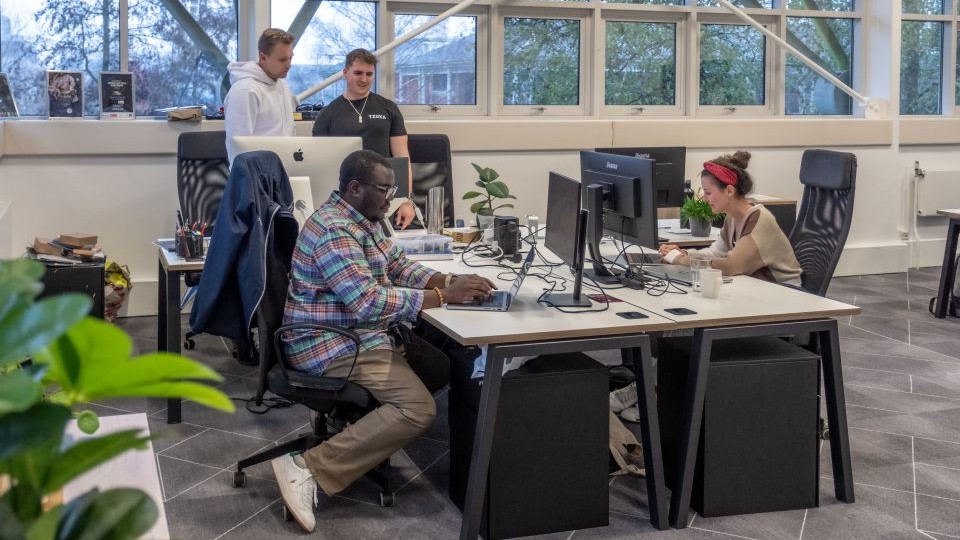The KEF provides unique and important public information on the diverse ways English universities continue to engage with society and the economy, at the local, national, and international level.
Knowledge exchange activities play a key role in helping the insights generated by universities’ research reach a broad audience through events, partnerships or commercial agreements.
The KEF groups institutions into ‘clusters’ of peers – institutions with similar characteristics such as how much research they do and in what subject areas. Loughborough University is in a cluster comprising large, high research intensive and broad-discipline universities undertaking a significant amount of excellent research.
In the new KEF5 assessment, released on Tuesday 23 September, Loughborough was awarded the highest possible grade, quintile 5. This grade recognises the ‘very high engagement’ the university continues to demonstrate in the categories of ‘Working with business’, ‘Working with public and third sector’, and ‘Intellectual Property (IP) and commercialisation’.
Significant projects in these areas of success include:
- Working with Business
EnerHy is an Engineering and Physical Sciences Research Council (EPSRC) Centre for Doctoral Training (CDT) that collaborates with more than 60 industry and civic partners and is led by Loughborough University in partnership with Cranfield University, and the University of Strathclyde, as announced earlier this year. Together, researchers are exploring methods to achieve Net Zero by making green hydrogen and wind energy more affordable, scalable, and sustainable.
Most recently Loughborough University’s battery-electrolyser technology was awarded the Outstanding Impact award at the 2025 Hydrogen Awards which praised its potential for energy storage and green hydrogen production.
- Working with Public and Third Sector
Loughborough’s Centre for Research in Social Policy (CRSP) collaborates with multiple partners, including the Joseph Rowntree Foundation (JRF). The JRF and Loughborough pioneered work into the Minimum Income Standard, a well-known and internationally recognised methodology defining acceptable standards of living, which informs the Real Living Wage that has since become a cornerstone of social policy.
CRSP and JRF recently renewed their partnership bringing a further £800,000 in research funding until 2028 that will continue research into the Minimum Income Standard.
- IP and Commercialisation
Loughborough University has a rich history of nurturing a culture of IP and commercialisation to rapidly bring ideas to market. One Loughborough University spinouts is TransHumanity Ltd. which has recently been able to secure £400,000 in pre-seed funding investment to empower its technologies in Agent AI.
TransHumanity’s first product Aptiq, utilises its AI technology to quickly analyse transport data to support local authorities.
Discussing the University’s success in KEF5, Professor Dan Parsons, Pro Vice-Chancellor for Research and Innovation at Loughborough, said: "It is fantastic to see these very encouraging results published in the latest KEF assessment, which clearly highlight the enduring strengths of our knowledge exchange and innovation programmes here at Loughborough University.
“Innovation and knowledge exchange activity is an essential part of our mission as an institution, helping us to translate the powerful insights of our research into tangible, positive outcomes for individuals, organisations and broader society.
“We pride ourselves in ensuring that our research makes a difference and I am especially pleased to see the recognition of our continued excellence in developing meaningful collaborations with public and private sector partners, as well as being seen as leading in commercialising research projects into real-world economic and social impact.”
